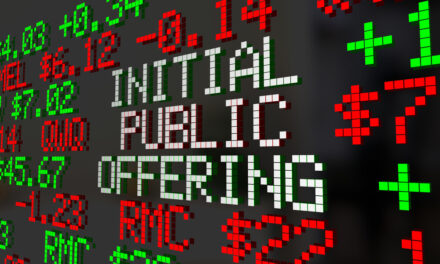The U.S. Federal Reserve’s actions have helped prop up the economy and financial markets as the country deals with the unprecedented coronavirus pandemic, but has the central bank gone too far?
In last week’s Federal Open Market Committee meeting, the central bank announced it will keep interest rates low until employment gets closer to its record lows from earlier this year.
The Fed also said it is committed to doing whatever it takes to help the economy and financial markets, which means pumping as much liquidity as needed — even as its balance sheet balloons to a record $6.7 trillion.

Banyan Hill’s Charles Mizrahi
Banyan Hill Publishing’s Charles Mizrahi says the COVID-19 pandemic has created a unique economic situation that calls for unique Fed action.
“We are sailing in uncharted waters. Everyone is learning on the job. There never has been an event since the founding of the country in 1776 (244 years ago) where the economy shut down and came to a complete stop,” Mizrahi, Editor of Alpha Investor, wrote via email.
Berkshire Hathaway CEO Warren Buffett echoed this sentiment during his company’s annual shareholder meeting over the weekend, which took place online for the first time.
“We’re doing things that we really don’t know the ultimate outcome to,” Buffett said. “I think in general they’re the right thing, but I don’t think they’re without consequences, and I think they could be of extreme consequences if pushed far enough. But there would be kind of extreme consequences if we didn’t do it as well.”
While the Fed’s actions can be seen as drastic, there are two sides to the coin, and Mizrahi asks any critics to consider the situation if nothing was done.
“Imagine 30 million with NO stimulus checks, additional unemployment checks … businesses with no way to access the credit markets, PPP (Paycheck Protection Program), etc.?” Mizrahi wrote. “The fact that there are not riots in the street, starving people in the cities and mass looting … I’d say the Fed did a fantastic job.”
How Investors Should React Amid the Fed’s Actions
While we won’t know the ultimate outcome of the Fed’s actions for some time, Mizrahi, a long-term value investor in the Buffett mold, thinks investors should target companies with proven track records because so much is unknown about the future, and he had the perfect anecdote to describe what’s going on.
“This reminds of the soldier who landed on Omaha Beach on D-Day. Bullets are flying past his head, soldiers are getting mowed down before they leave the Higgins boats … As him and his buddy are crawling on the beach, not knowing if they will survive the next three feet, he turns to his buddy and asks, ‘So what are we having for dinner?’
“Let’s get through this pandemic first, flatten the curve and get a vaccine, and THEN we’ll worry about the economy,” he added.
Mizrahi’s Alpha Investor focuses on finding hidden gems in the market, and companies with great management and business models that are easy to understand, taking some of the uncertainty out of investing.
“Realize you are dealing with the unknown. No one knows what will happen in the next few weeks or months. Instead of trying to guess, buy stocks of companies that are in businesses that don’t require foot traffic, can survive quarantines and have recurring cash flow,” Mizrahi wrote.
He also had one final nugget of advice during one of the strangest earnings seasons to date, which has companies pulling future earnings guidances left and right.
“Trying to model future earnings is pissing in the wind,” Mizrahi said.
So while we can’t predict exactly what the Fed’s actions will eventually lead to in the economy or stock market, it may be best to take a more cautious approach until things are more certain.




